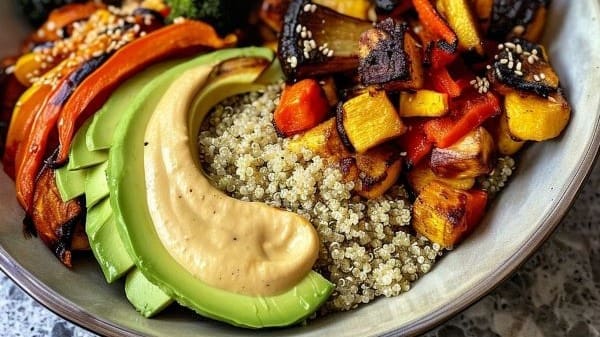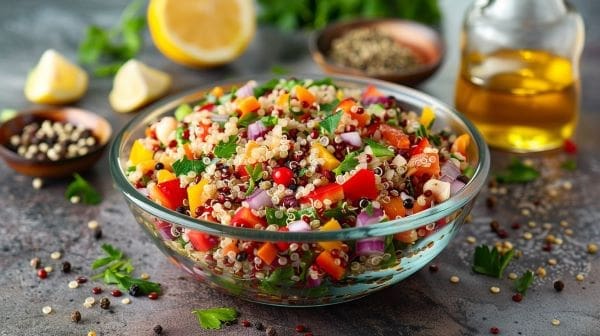Fuel Your Body with Wholesome Goodness: The Power of Whole Grains in Nutrition!
Introduction to Whole Grains:
When it comes to nutrition, there is one food group that often gets overlooked – whole grains. These unrefined grains, packed with essential nutrients and fiber, are a powerhouse for your health. From brown rice to quinoa, grains offer a plethora of nutrition benefits that can fuel your body and keep you feeling energized throughout the day.
Types of Whole Grains and Their Nutritional Benefits:
These grains come in various forms, each with its unique set of nutrition. Some popular types of whole grains include oatmeal, whole wheat, barley, and corn. These grains are rich in essential nutrients like fiber, vitamins, minerals, and antioxidants. Fiber, in particular, is abundant in whole grains and plays a vital role in maintaining a healthy digestive system and reducing the risk of chronic diseases.
For instance, oatmeal is not only a comforting breakfast option but also a great source of soluble fiber, which can help lower cholesterol levels. Whole wheat is another versatile grain that provides a substantial amount of dietary fiber, iron, and B vitamins. Barley, known for its nutty flavor, is high in fiber and can help regulate blood sugar levels. Corn, a staple in many cuisines, is not only delicious but also a good source of fiber, vitamin C, and antioxidants.
The Importance of These Grains in a Balanced Diet:
A balanced diet is crucial for overall well-being, and the nutrition of grains play a vital role in achieving that balance. Incorporating grains into your meals can provide you with sustained energy, improve digestion, and support a healthy weight. Unlike refined grains, which have been stripped of their bran and germ, whole grains retain their natural goodness, making them a nutrient-dense choice.
They are an excellent source of nutrition, such as complex carbohydrates, which are essential for fueling your body and maintaining steady blood sugar levels. These nutritional grains, also contain a wide array of vitamins and minerals, such as magnesium, selenium, and zinc, which are vital for optimal bodily functions. By including these grains in your diet, you can ensure that you’re nourishing your body with the nutrients it needs to thrive.

Health Benefits of Incorporating Whole Grains into Your Meals:
The health benefits of these grains are numerous and far-reaching. By making these grains a part of your daily diet, you can improve your heart health, reduce the risk of chronic diseases, and enhance your overall well-being. The high fiber content in whole grains helps lower cholesterol levels, which, in turn, reduces the risk of heart disease and stroke.
Moreover, these grains have been linked to a decreased risk of type 2 diabetes. The fiber and magnesium in whole grains help regulate blood sugar levels and improve insulin sensitivity. Additionally, the antioxidants found in whole grains have been shown to have anti-inflammatory properties, which can protect against certain types of cancer and other chronic conditions.
Whole Grains and Weight Management:
If you’re looking to maintain a healthy weight or shed a few pounds, incorporating these grains into your diet can be a game-changer. These grains are rich in fiber, which adds bulk to your meals and helps you feel fuller for longer. This can prevent overeating and unnecessary snacking, making it easier to manage your weight.
Furthermore, the fiber in whole grains aids in proper digestion and promotes a healthy gut microbiome. A healthy gut is essential for weight management as it influences nutrient absorption and metabolism. By including these nutritional grains in your meals, you can support a healthy weight and optimize your body’s natural processes.
How to Include More of These Grains in Your Diet:
Adding more nutrition with grains to your diet doesn’t have to be complicated. Here are a few simple tips to help you incorporate them into your meals:
- Start your day right with a bowl of oatmeal or whole grain cereal.
- Substitute white rice or pasta with whole grain options like brown rice or whole wheat pasta.
- Experiment with different types of whole grains, such as quinoa, buckwheat, or farro, to add variety to your meals.
- Swap out refined flour with whole grain flour when baking bread or making homemade pizza dough.
- Snack on whole grain crackers or popcorn instead of processed snacks.
By making these small changes, you can gradually increase your intake of whole grains and enjoy their many benefits.

Common Misconceptions About Whole Grains:
Despite their numerous health benefits, whole grains sometimes get a bad rap due to common misconceptions. One misconception is that these grains are tasteless or bland. However, with the right preparation and seasoning, these grains can be incredibly flavorful and satisfying.
Another misconception is that whole grains take longer to cook. While some varieties may require a longer cooking time, there are also quick-cooking options available. Instant oatmeal or pre-cooked quinoa are convenient choices that can be ready in a matter of minutes.
Tips for Shopping and Cooking with Whole Grains:
When it comes to nutrition, shop for these grains, it’s essential to read labels carefully. Look for products that list of these grains as the first ingredient and avoid those that contain refined grains or added sugars. Buying these grains in bulk can also be a cost-effective option.
Cooking with nutritional grains can be an enjoyable and creative process. Experiment with different cooking methods and flavor combinations to find your favorites. For example, try roasting vegetables and tossing them with cooked quinoa for a nutritious and delicious meal. Or, make a colorful salad with a mix of cooked these grains, fresh herbs, and a tangy vinaigrette. Make nutrition a part of every meal.

Whole Grain Recipes and Meal Ideas:
To inspire you on your journey, here are a few recipes and nutritional meals ideas to get you started:
- Breakfast: Overnight oats with berries and almonds
- Lunch: Quinoa salad with roasted vegetables and feta cheese
- Dinner: Whole wheat pasta with a tomato and spinach sauce
- Snack: Whole grain crackers with hummus
- Dessert: Oatmeal cookies with dark chocolate chips
These are just a few examples, but the possibilities are endless. Get creative in the kitchen and explore the world of nutrition and grains!
Conclusion: Embracing the Power of Whole Grains for a Healthier You:
Incorporating whole grains into your diet is a simple and effective way to fuel your body with wholesome nutritional goodness. From their nutritional benefits to their role in weight management, these grains offer a wide range of advantages that can contribute to your overall well-being.
So, the next time you’re planning your nutrition, meals or shopping for groceries, make sure to include whole grains on your list. Your body will thank you for it!
Call to Action:
Fuel your body with the power of these grains and experience the difference in your health and well-being. Start embracing the wholesome goodness and nutrition of whole grains today!







